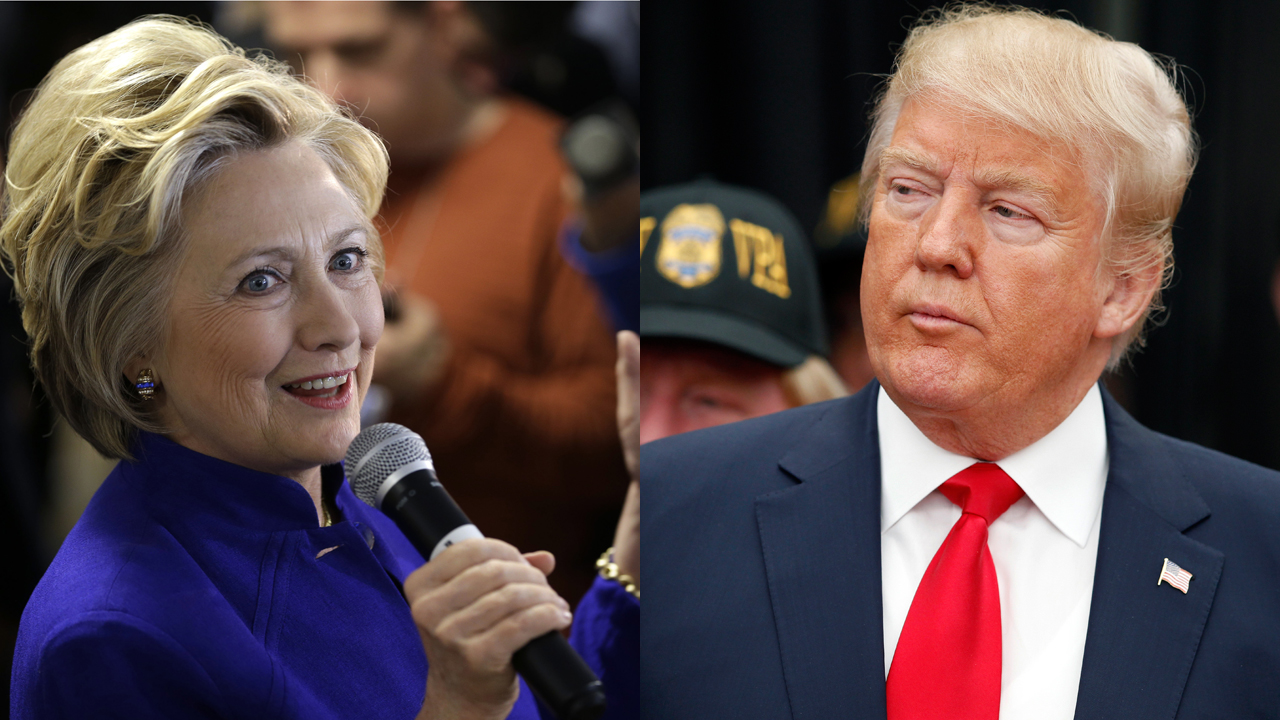No Assurance One Frontrunner Would be Best for Economy Over the Other
As New Yorkers cast their votes for the Republican and Democrat they want to represent them in a general election contest, Wall Street and the market’s recent performance is arguably in the back of Main Street’s collective mind.
Michael Block, chief strategist at Rhino Trading Partners, told Neil Cavuto on the FOX Business Network’s Cavuto Coast to Coast, that both candidates have their pros and cons, but it’s almost impossible at this point to know which frontrunners – either Hillary Clinton or Donald Trump – would be better for the U.S. economy.
“If we get a centrist Clinton – Bill Clinton was the era of good feelings, markets made the news highs. We saw that happened. Trump’s a business guy. Does that mean he’s going to be good for business? Not if he stifles trade. He’s anti trade and that’s not good. I don’t like that,” he said.
While the Dow Jones Industrial Average crossed the 18000 level for the first time since July on Monday, Block pointed to a range of economic data that showed perhaps the economy isn’t on the surest footing it could be.
On Tuesday, housing starts and permits came in well under expectations. Starts of new home construction came in at an annualized rate of 1.09 million units, below the 1.17 million units expectation. Building permits, meanwhile, which are a gauge of future activity, came in at 1.09 million, also below expectations for 1.2 million units.
In a note, IHS U.S. economist Kristin Reynolds said while the numbers don’t look rosy, the figures are volatile, and it’s important to note that February’s stats were revised higher.
“While this report is discouraging as we enter into the spring selling season, one month does not make a trend,” she said. “Homebuilder optimism has been moving sideways for three months in a row, but the headline index remains ahead of year-earlier levels.”
She went on to say that fundamentals in the housing market remain supportive.
Block, however, wasn’t as convinced, and said the recent market activity “certainly” gives aid to the Democratic Party.
“I’m going to sit here and say it’s not so good. Industrial production was not so good. So, there are some mixed signals here. And I fear that these are people equating the stock-market rally, which could be happening for any number of reasons, to an economic explosion here. And that’s not the case,” he said.
Block also referenced poor earnings growth as first-quarter reporting season gets underway and those on the Street assess quarterly report cards from the nation’s biggest banks, which mostly beat lowered expectations.
“For a year now, we’ve had these bad earnings. The bar has gotten so low in terms of expectations…trading is down, equity trading is not looking good. With what Jack Lew is doing at the Treasury, all the big mergers are gone. The big advisory fees may be going away. We’re ignoring that because expectations got so low. Ironically, we’re doing that as we’re approaching stock-market highs,” he explained.
Still, he said the bull case for the market is that since so many investors got out during the tumultuous start of the year, there’s a pool of individual investors still sitting on the sidelines waiting to dive back in and play catch up.




















